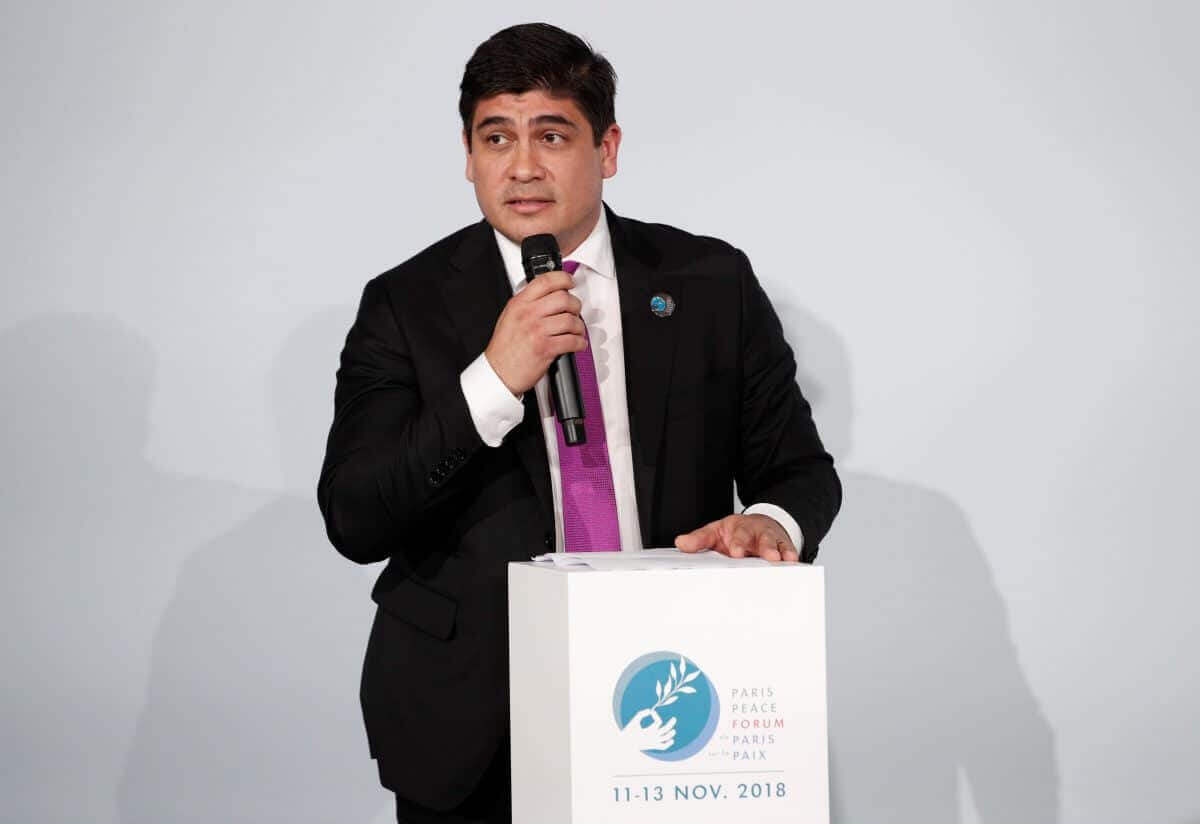Over the weekend, the 37 member states of the Organisation for Economic Co-operation and Development (OECD) unanimously voted to invite Costa Rica to become a member of the Organisation. Costa Rica President Carlos Alvarado and OECD Secretary-General Angel Gurría are scheduled to ink the Accession Agreement at some point this week to finalise the process.
Costa Rica’s inclusion would make it the first Central American country to join the OECD and is a reflection of its economic progress, given that the OECD countries are generally viewed to be high-income countries with a high Human Development Index (HDI) that are generally considered to be developed nations. In fact, OECD countries collectively account for 62.2% of the global nominal GDP and 42.8% of global GDP at purchasing power parity. It will become the fourth Latin American and Caribbean country to join the grouping, following Mexico, Chile, and Colombia.
To this end, OECD Secretary-General Gurría said, “We are delighted to welcome Costa Rica into the OECD family at a time when multilateralism is more important than ever. The best way to address today’s global challenges is by having emerging, developing and advanced economies working side by side on solutions.”
He added, “OECD membership has been a personal objective of the President and his government. We have been encouraged to see real cross-party commitment to the process and impressed by the engagement and reactivity of the Legislative Assembly, which enacted over a dozen laws including a comprehensive reform of competition policy and enforcement and fundamental reform of the national statistics system, as a direct result of OECD recommendations.”
Costa Rica’s accession follows “in-depth technical reviews by 22 OECD Committees”, who have noted that the country has implemented “important reforms that have allowed the country to align its legislation, policies and practices to OECD standards in areas such as competition, statistics, anti-bribery, corporate governance of state-owned enterprises, financial markets, tax transparency and industrial chemicals management.”
In particular, the country has drawn praise for its performance on environmental and social indicators.
Local news outlet Tico Times reported on Tuesday that the Costa Rican Congress had given the go-ahead for the government to join the OECD. President Alvarado took to Twitter to celebrate the latest developments, saying, “[It is] a process that has involved an important reform of the state and that will allow us to participate in the best international standards of public policy,” adding, “Working with this organization will continue to be a cornerstone for the sustainable and inclusive development of our country.”
Along these same lines, Foreign Trade Minister Andrés Valenciano said, “Being part of this select group of countries, we will be able to continue impacting the lives of all Costa Rican people.” He also said, “The imminent entry is also a reflection of Costa Rica's commitment to multilateralism, of our desire to serve as a beacon of good practices for the Latin American region, and an opportunity to benefit from the OECD's efforts to achieve a post-COVID recovery that is inclusive, resilient, and sustainable.”
Given that the Legislative Assembly has greenlighted Costa Rica’s entry into the OECD, the president must now sign the bill into law, publish it in the Official Gazette, and finalise the ratification with French authorities.
Membership in the OECD will now allow Costa Rica to take part in the Organisation’s committee and working groups and participate in discussions and offer input on ‘common challenges’, such as the ongoing pandemic, climate change, and “financial transparency”. It will also pave the way for business and the government to attract a greater level of foreign investment.
Costa Rica first expressed interest in joining the Organisation back in 2012, and the consideration process back in 2015. Over the next few years, Costa Rica will hope to use its membership to address the factors that continue to restrain economic growth, which the Atlantic Council’s María Fernanda Bozmoski says are: “high inequality, high informality, and unemployment, and low productivity and tax revenue collection combined with unfettered public spending.”
Costa Rica to Become First Central American Nation to Join OECD
Costa Rica’s accession follows “in-depth technical reviews by 22 OECD Committees”, who noted the country’s commendable performance on environmental and social indicators.
May 19, 2021

IMAGE SOURCE: YOAN VALAT / EPACosta Rican President Carlos Alvarado
